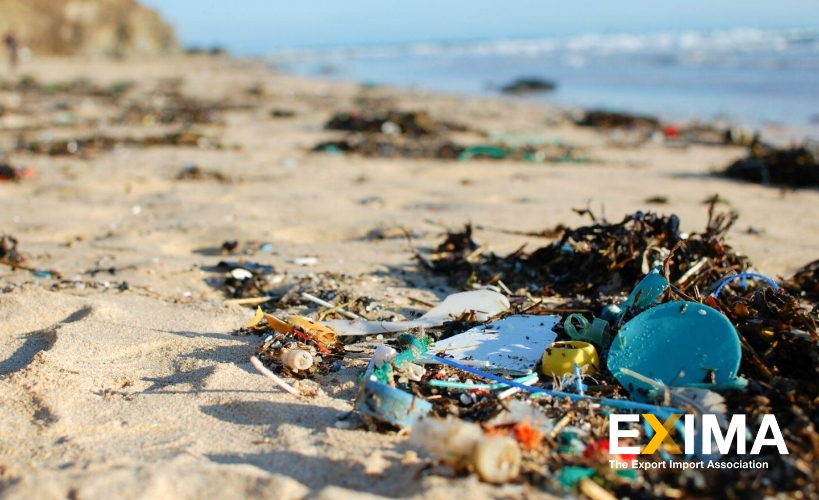☰
Plastic pollution is one of the most pressing environmental issues facing the world today. A wide body of research demonstrates the severely detrimental impact plastic pollution has on the environment, wildlife, and human health. While humorous initiatives have been underway to tackle this problem in recent years, plastic production continues to ramp up, with more than half of all plastics ever produced being made in the last 15 years. Now, the EU has imposed a ban on single-use plastics to address this problem and protect the planet and its inhabitants from plastic pollution.

The Effect of Plastic Pollution
Around 8 million tons of plastic enter our oceans each year. Over many years, these products degrade until they are no longer visible; however, they never fully break down. As a result, our oceans are now full of tiny plastic particles, known as microplastics, which enter the food chain and the air we breathe. They’ve been found in all ecosystems and recently inside human organs. Research has connected exposure to microplastics with serious illnesses such as cancer. While policymakers develop a number of innovative strategies to help clean up microplastic pollution, it is also vitally important to stop plastic pollution at its source by reducing the number of plastic items produced.
Banning Ten Everyday Plastic Items
The EU’s ban on single-use plastics has been in the works for many years and finally came into effect in July 2021. Ten common everyday single-use items are now banned in the EU, including plastic cotton bud sticks, cutlery, plates, straws, stirrers, sticks for party balloons, and polystyrene food and drink containers. Additionally, these products have also been on the blocklist if made from oxo-degradable plastic products because they can contribute to the microplastic problem even though companies advertise them as greener.
Companies manufacturing banned items will suffer huge impacts. By 2030 it will be illegal to produce and sell these single-use plastic items in cases where sustainable and affordable alternatives are easily available. However, this ban presents a great opportunity for innovation and success by adapting to the changing retail landscape.
For many years, consumers have been turning more and more to sustainable products. Even without the EU’s ban on single-use plastics, there is consumer demand for choices to environmentally damaging commodities. Companies that can be creative and offer affordable alternatives will be those that thrive as the single-use plastic ban comes into place. For companies outside of the EU, watching how companies adapt will likely be a valuable lesson ahead of potential similar bans coming into force in their own countries.

Stayed Tuned with Export Portal
Businesses that make sustainability part of their business plan are likely to remain relevant to their consumers in the coming years. Read more on our blog about how businesses can benefit from adopting more environmentally-friendly practices.


